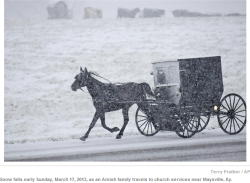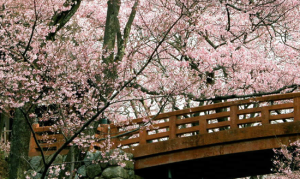Tuesday
Mar192013
Spring 2013 Ukko Snow & Blossoms
Spring time we are reminded to observe and celebrate the amazing diversity and magic of our planet earth. In SoCal over the last few weeks there has been a explosion of life as you can see in the pictures above...

At the same time tonight the winter storm UKKO is dumping over a foot of snow in New England and Great Lakes!
So much for Punxsutawney Phil on Groundhog Day, didn’t see his shadow, and declared it would be an early spring.
Spring Equinox Rebirth Renewal New Year
Spring is seen as a time of growth, renewal, of new life (both plant and animal) being born. The term is also used more generally as a metaphor for the start of better times. The word “equinox” derives from the Latin words meaning “equal night” and refers to the time when the sun crosses the equator. At such times, day and night are everywhere of nearly equal length everywhere in the world. In the northern hemisphere the March equinox marks the start of spring and has long been celebrated as a time of rebirth.
Many cultures and religions celebrate or observe holidays and festivals around the time of the March equinox, such as the Easter holiday period. The astronomical Persian calendar begins its New Year on the day when the March equinox occurs.
Spring celebrations include: 
- Japan Shunki kōrei-sai Vernal Equinox Day (春分の日 Shunbun no hi?) This national holiday as a day for the admiration of nature and the love of living things. Spring Equinox also signals that the cherry blossom festival is just around the corner. It starts in the south of Japan and then gradually moves north in a band of pink across the country.
- Mexico festivales de primavera Chichen Itza is the most popular spot in Mexico to celebrate the spring equinox. The site's most famous building, The Kulkulkan temple, is the site of a dramatic display of Mayan astronomical knowledge. Archaeological site of Teotihuacan, near Mexico City, is a favorite spot to celebrate the Spring Equinox. On this date hundreds of thousands of visitors visit the site, many dressed all in white. They climb to the top of the Pyramid of the Sun where they perform rituals and stretch out their arms to receive the special energy they believe is present on that day.
- Persia Nowruz The first day of spring (celebrated on the day of the astronomical vernal equinox, which usually occurs on 21 March or the previous or following day depending on where it is observed) is the beginning of the new year, Nowruz, in the Iranian calendar. Originally being aZoroastrian festival, and the holiest of them all, Nowruz is believed to have been invented byZoroaster himself. Nowruz (also Naw-Rúz, Norooz, Newroz, Navroj, and many other variants) which means "New Day" in Persian language.
- India Holi or Phagwah, the festival of colors, celebrated at the end of the winter season on the last full moon of the lunar month Falgun (February/March), is the most vibrant festival of colours celebrated by Hindus in India. People throw water and apply colour powders on each other.
- Vietnam Tết Vietnamese use the traditional lunar as well as the modern solar calendar. They celebrate Vietnamese New Year in late January or early February is also known as the beginning of Spring. The lunar calendar is used mainly to divide the year into seasons for agriculture purposes. In the old days, the celebration used to last the entire month of January of the lunar calendar.
- Spring Celebration: Nowruz March 20, 2012
- Year of the Dragon 4710: Lunar New Year 01.23.2012
- How active is our planet earth?
- Enjoy The Nature As A Gift
- Spring Cherry Blossom Centennial - Tsunami Aftermath
- A Wish That Brings the World A Little Closer Together
- Are you a typical human on the blue planet?
- Earth 2011: Year-in-Review-in-3 minutes
- National Cherry Blossom Festival Invites You to Stand With People of Japan

 Tuesday, March 19, 2013 at 5:57PM
Tuesday, March 19, 2013 at 5:57PM